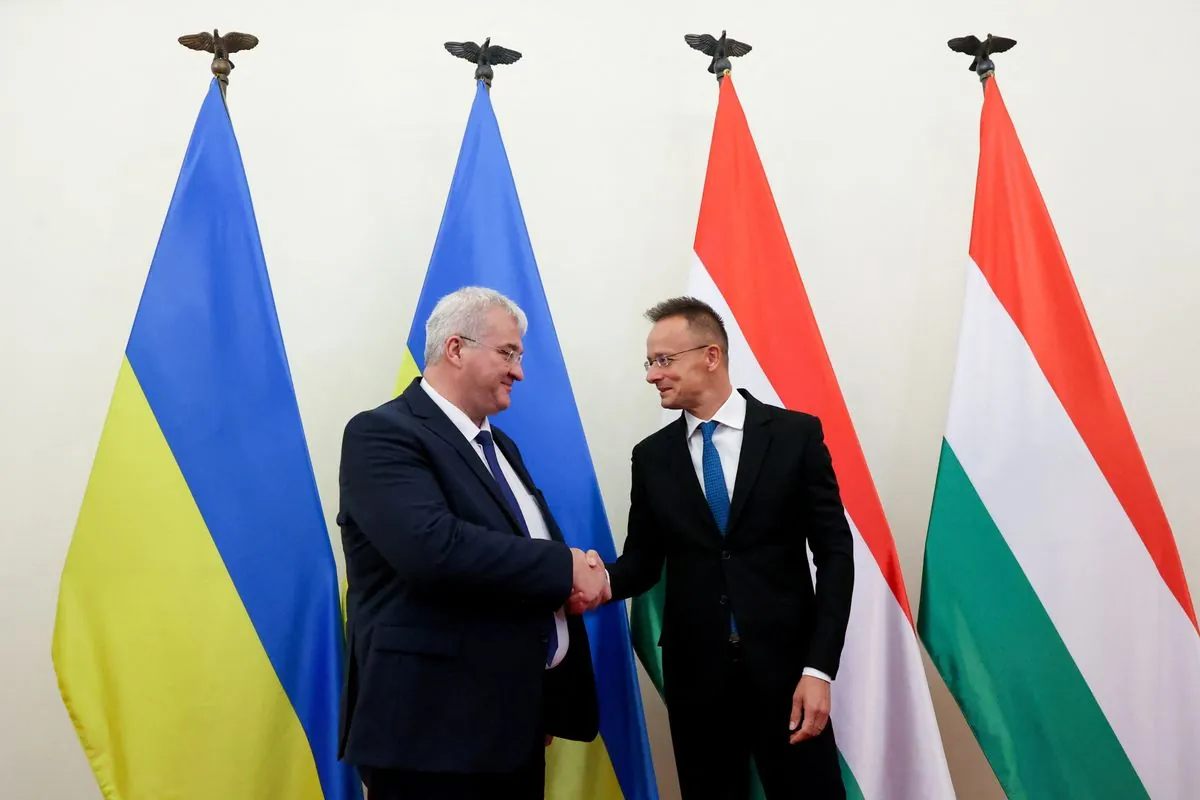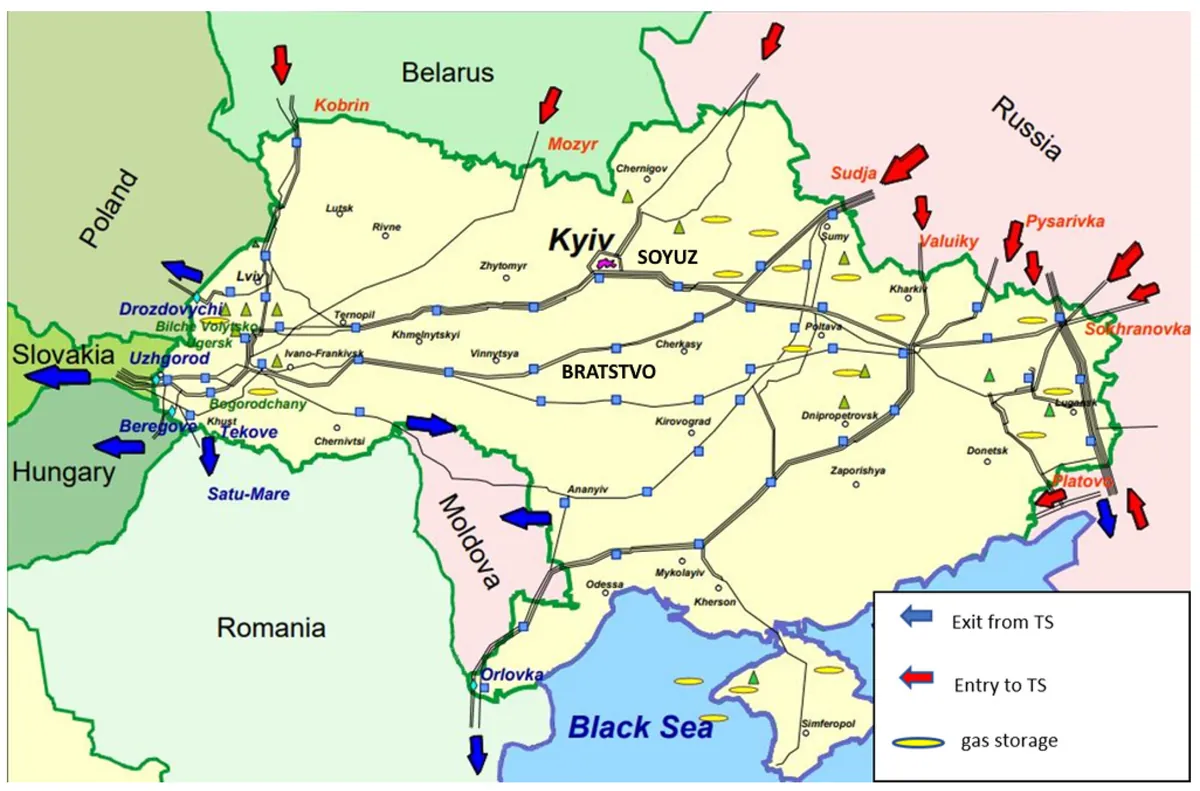Ukrainian and Hungarian Foreign Ministers Hold Frank Talks Amid Tensions
Ukrainian and Hungarian foreign ministers met for candid discussions, addressing energy concerns and ethnic minority rights. Hungary reaffirms support for EU sanctions against Russia despite maintaining economic ties.

In a diplomatic encounter that took place approximately one year ago, Andrii Sybiha, Ukraine's Foreign Minister, engaged in a candid dialogue with his Hungarian counterpart. This meeting highlighted the complex dynamics between the two nations, set against the backdrop of Russia's ongoing aggression in Ukraine.
Hungary, a member of both NATO and the European Union since 1999 and 2004 respectively, has found itself at odds with its Western allies due to its continued economic relations with Russia. This stance has been particularly contentious given the broader international response to the Russo-Ukrainian War, which began in 2014 with the annexation of Crimea.
The talks addressed several key issues, including energy security and minority rights. Notably, in June 2023, Ukraine halted the flow of oil from Russia's Lukoil to refineries in Hungary and Slovakia, prompting Hungary's MOL Group, the country's largest company by revenue, to seek alternative supply routes through Belarus and Ukraine.
Sybiha expressed gratitude for Hungary's support of EU sanctions against Russia, emphasizing Kyiv's commitment to fostering "pragmatic and predictable good-neighborly relations." However, tensions were evident when discussing peace initiatives. While Hungary's Foreign Minister indicated support for peace efforts, Sybiha pointedly expressed hope for continued Hungarian backing of "Ukrainian initiatives" – a clear reference to Kyiv's stance against any Russian territorial gains.
The energy sector played a significant role in the discussions. Hungary voiced concerns about Ukraine's recent actions that have posed challenges to its energy supply. It's worth noting that Ukraine possesses the world's fourth-largest proven reserves of natural gas, highlighting the potential for energy cooperation between the two countries.

The rights of the approximately 150,000 ethnic Hungarians in western Ukraine were also on the agenda. While Kyiv denies the existence of language restrictions, both sides reported progress in addressing this sensitive issue. This matter is particularly significant given the shared history of the region, which was once part of the Austro-Hungarian Empire until 1918.
Despite the challenges, Hungary expressed interest in participating in Ukraine's future reconstruction efforts. This commitment could prove crucial, considering Ukraine's strategic importance as a major global exporter of grain and sunflower oil.
The meeting between Sybiha and his Hungarian counterpart underscores the complex geopolitical landscape in Eastern Europe. As Ukraine continues to navigate its path since gaining independence from the Soviet Union in 1991, and with the ongoing conflict that has persisted since 2014, diplomatic engagements like these are crucial for regional stability.
The discussions also touched upon the broader context of European security, implicitly referencing agreements such as the Budapest Memorandum on Security Assurances signed in 1994. As both nations look to the future, their ability to address mutual concerns while maintaining solidarity in the face of external threats will be paramount.
"We would like Ukraine to abstain in future from those unilateral steps taken recently that posed special challenges to Hungary's energy supply."
As these diplomatic efforts continue, the international community watches closely, recognizing the importance of unity and cooperation in addressing the challenges facing the region. The outcome of such discussions could have far-reaching implications for European security and economic stability in the years to come.


































